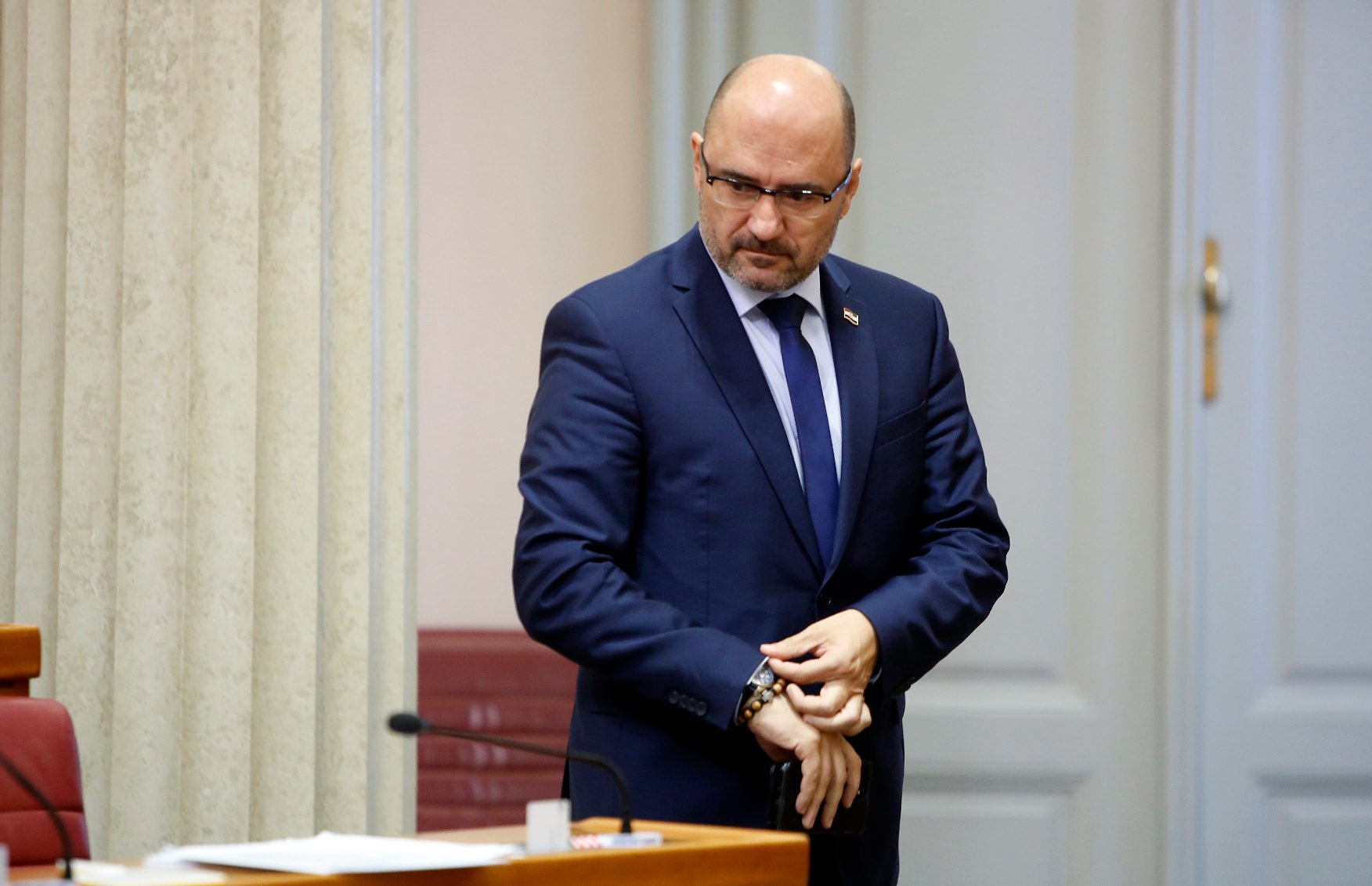
It continues: 'The Croatian Sabor expresses hope that the process of necessary changes to the electoral legislation concerning the election of members of the B-H Presidency, the House of Peoples of the FB-H Parliamentary Assembly, and the elections (of members of) the City Council of Mostar, will be accomplished by implementing the ... decisions of the B-H Constitutional Court, and will ensure a legitimate and proportional representation of constituent peoples and all citizens. The Croatian Sabor expects the unresolved cases of murder of Croats in BH, from returnees to senior officials, to be resolved, and effective prosecution of war crimes, with the same treatment of members of all peoples, to take place'.
Strong charges
Those are the most important points of the draft Sabor Declaration on the Position of Croats in B-H that will soon be up for the parliamentary debate. It is a document that brings strong charges of marginalization of Croats in B-H, and will certainly elicit reactions in Sarajevo.
Jutarnji list journalists have gained access to the draft Declaration, over twenty pages of text, which describes the Croatian view of the situation in B-H in detail. According to the document, during the war, (wartime B-H President) Alija Izetbegović and Bosniaks conducted a unitarist policy, B-H Serbs a secessionist one, and Croats proposed federalization, which the Declaration describes as the optimal solution. After the year 2000, however, 'the adoption of unconstitutional laws ... resulted in the political and socio-economic marginalization of the Croat people'.
At the same time, the document offers some self-criticism, saying that 'the Republic of Croatia has not reacted sufficiently (or at all) to the processes of de-constitutionalization of Croats in B-H, despite the fact that (its own) Constitution prescribes the obligation of care for and protection of interests of Croats no matter where they live'.
The preamble to the Declaration cites the most important documents of the Republic of Croatia that provide the basis and the framework for the activities of the Croatian institutions in the matter of protection of the position of Croats in B-H: the Constitution, the Strategy on Relations of the Republic of Croatia with Croats outside the Republic of Croatia, the Relations Between the Republic of Croatia and Croats Outside the Republic of Croatia Act, and the National Security Strategy. Clearly expressed is the premise that Croatia has an interest and obligation in voicing its stand on the position of Croats in B-H as a strategic national issue.
A particular demand is for amendments to the B-H Constitution and the B-H Electoral Law, 'which need to ensure the harmonization of the relations among its three constituent peoples, and the simplicity, transparency, manageability and economy of the internal organization of B-H'. Further in the draft Declaration, detailed examples are given, and the consequences described, of violations of the Dayton Accord, and of laws detrimental to the Croat people in B-H, but also to the State of Bosnia-Herzegovina in general.
-The distortions of the Dayton and Washington Agreements, and the B-H Constitution, resulting from imposed amendments to the Constitutions of the (two constituent) entities and the laws derived therefrom, have had negative consequences for the whole of B-H, while proving fatal for the position of Croats in B-H, a smaller people than the other two constituent peoples, in particular - says the draft the MPs will vote on.
Implementation on the ground
The process of de-constitutionalization of Croats in B-H started in 2000 with the proposal to amend the electoral rules, on the initiative of the Head of the OSCE Mission to B-H Robert Barry. The consequence of the amendments was that Croats de facto lost their constituent status within the entity of the Federation of Bosnia-Herzegovina. In the Republika Srpska entity they have never received it at all. Namely, the 2000 Constitutional Court ruling was implemented only in the letter of the law, but no mechanisms were put in place to ensure the implementation on the ground.
That is why all state institutions are requested to engage on the changes the controversial law and actual practice in B-H, the Republic of Croatia to continue to help Croats there.
Key messages in the Declaration
- The Croat people in B-H is part of a single and indivisible Croat nation, no matter which country and part of the world Croats live in.
- Bosnia-Herzegovina, based on Annex IV (Constitution) of the Dayton Accord, is founded as a state of the three constituent peoples, as defined in particular in the preamble to the Constitution.
- The three constituent peoples in B-H (Bosniaks, Croats and Serbs) are a constitutional category and a fact that cannot and must not be politically ignored.
- The Croat member of the B-H Presidency has just been elected by the votes of the Bosniak people for the third successive time — an outcome possible even if all Croats in B-H vote for another candidate — which is contrary to the spirit of the Dayton Accord.
- Amendments to the B-H Constitution and the B-H Electoral Law are demanded, "which need to ensure the harmonization of the relations among its three constituent peoples, and the simplicity, transparency, manageability and economy of the internal organization of B-H".






Komentari
0